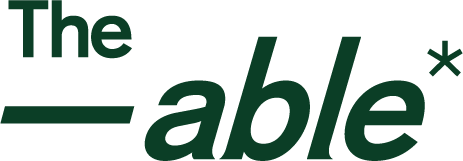



Lavet af Qourban
Carabiners in recycled plastic
Keychain made of recycled plastic from food boxes from a refugee camp in Northern Greece. Qourban from Afghanistan has collected plastic, melted and remolded it in the MakerSpace near the refugee camp in Katsikas.
Can be easily attached to a belt strap in one's trousers or in a bag inside, so that the keys do not disappear at the bottom.
Pickup available at Nørrebro
Usually ready in 24 hours
Size
6 * 4 cm.
Handmade by...
Material & care
Delivery & return
Shipping:
Items in stock are generally shipped within 1-3 working days.
Pickup:
You are always welcome to pick up at one of the following two locations in Copenhagen:
Holtegade 6 or Bispeengen 20 at Nørrebro.
Write in a comment at check-out where you prefer to collect, and you will get an email from me with times to choose from at that location the following week.
Return:
You naturally have 14 days of full right of return (excluding delivery) from when you have received your goods. If you wish to return, you must send an email to kontakt@theable.dk .

When you buy products from The -able, you support people fleeing to...

Better mental health
Creating something with your hands can have a profound positive impact on mental health, especially for those who have experienced trauma. Studies show that engaging in hands-on activities can reduce stress and anxiety by up to 45%.
Many of the artisans we collaborate with have faced significant challenges in adjusting to new countries, often feeling displaced and disconnected.
Through practicing familiar crafts and connecting with new, like-minded communities, they begin to regain a sense of ownership, belonging, and community. Each product you purchase carries the story of a person’s journey, as well as their opportunity to rebuild and create anew.
Jouhania, who embroiders products in the Shatila refugee camp for The -able, shares: 'For me, embroidering is like stitching my life back together, thread by thread. It’s a traditional Palestinian craft that I am proud to bring back to life.

Greater financial freedom
According to the UN, around 70% of refugees live below the poverty line, and many do not have permission to work. Through our cooperation with local NGOs, people on the run get the opportunity to work and earn their own money through jobs they are good at. When people on the run are given the opportunity to be included in the labor market and earn their own money through dignified work, the sense of belonging to the new countries is strengthened and they are given the opportunity to take their first steps towards financial independence again.
Amina, who makes bags for The -able in Lebanon, says: “ Being financially independent from relief organizations has helped me regain my self-confidence and respect - I no longer feel like I'm outside, and I pass this strength and joy on to my children.”

Preserve endangered cultural heritage
An often overlooked consequence of people being forced to leave their homes and land is that local crafts are threatened. The traditions risk disappearing, as those who master the craft must leave materials, tools and practices behind.
At The -able, we work to preserve these traditions by always starting from the knowledge, skills and designs of the artisans and then integrating them into modern design and sustainable practices that can be continued in new countries.
Through our work, we ensure that these skills and traditions live on, while celebrating fine craftsmanship and respecting both people and the planet.


















